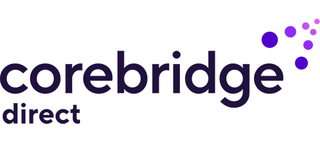5 Best Term Life Insurance Companies
Term life coverage is the most affordable type of life insurance. Depending on your age and health, you can leave your family a $250,000 death benefit for less than $200 per year.
However, choosing an insurance company can be challenging. According to the American Council of Life Insurers, there were over 700 life insurance companies in operation in the U.S. as of the end of 2022.
To help you find the right coverage for your needs, we evaluated leading insurers and selected the five best term life insurance companies based on their coverage options, term lengths, customer satisfaction ratings and cost. Keep reading to find out more.
Our Top Picks for the Best Term Life Insurance Companies
- Best Overall: State Farm
- Best for Term Options: Protective Life
- Best No-Exam Coverage: Ethos
- Best for Adjustable Coverage: Ladder
- Best for Parents: Fabric by Gerber
Best Term Life Insurance Companies Reviews
- Top-rated company for customer satisfaction
- Multi-policy discounts available
- Offers an instant answer coverage option
- Accelerated death or terminal illness riders not available
- Most policies must be purchased through an agent
- Not available in Massachusetts or Rhode Island
Why we chose it: State Farm is one of the largest providers of individual life insurance policies in the country. And it was also the top-ranked company in the 2023 J.D. Power U.S. Individual Life Insurance Customer Satisfaction Study, surpassing 21 other insurers to claim the top spot.
State Farm has multiple term life options, including an Instant Answer Term Insurance policy that allows you to purchase coverage of up to $50,000 in minutes. If you want a more robust policy, State Farm's Select Term policy provides a larger death benefit, and you can enhance your life insurance coverage with endorsements like children's term riders, select term riders or waiver of premium for disability riders.
As an added benefit, State Farm also offers significant discounts to policyholders who bundle life insurance with auto coverage.
Unfortunately, State Farm's term life policies aren't available everywhere; the company is not issuing new policies to residents of Massachusetts or Rhode Island. State Farm also has strict age limits on some term lengths; you must be 45 or younger to purchase a 30-year Select Term policy.
Read our full State Farm Life Insurance review
- Higher-than usual coverage maximum
- Longest term options in the industry
- Several available riders, including children's term and terminal illness benefits
- Lower-than-average customer satisfaction ratings
- Term coverage not available in New York
- Strict age maximums for tobacco users
Why we chose it: While most insurers sell up to 30-year term life policies, Protective Life stands out by offering one of the longest term length options in the industry. You can choose terms between 10 and 40 years in 5-year increments, locking in your rate and securing coverage for up to a decade longer.
Protective Life also offers a higher-than-average policy maximum of $50 million, so you can get as much coverage as you need to protect your loved ones financially.
Protective Life is available in most states, but it doesn't issue term life policies to residents of New York. Additionally, Protective Life didn't perform well in the J.D. Power U.S. Individual Life Insurance Customer Satisfaction Study; it was ranked 18th out of 22 insurers, with a score well below the industry average.
Read our full Protective Life Insurance review
- Up to $2 million in coverage can be purchased online
- Medical exams are not required
- Policies are effective immediately
- Coverage cannot be converted to a whole life insurance policy
- Rider availability may vary
- Not available in New York
Why we chose it: When you buy term life coverage, insurers typically require you to undergo a medical exam and lab work as part of the application process. But with Ethos, you can get coverage of up to $2 million online, with no need for a medical exam. And, if your application is approved, your policy can go into effect right away.
Ethos isn't a direct insurer. Instead, its policies are underwritten by major carriers like Ameritas, Legal & General America, Mutual of Omaha and TruStage Financial Group. Nevertheless, the insurance companies it partners with are well-respected and have strong financial strength ratings. For example, Mutual of Omaha was ranked fourth out of 22 insurers for customer satisfaction in J.D. Power's latest life insurance study and holds an A+ (Superior) AM Best rating.
The downside of Ethos? It doesn't issue term life policies to residents of New York. And although most insurers allow you to customize your policy with riders, with Ethos, rider availability varies by carrier.
Read our full Ethos Life Insurance Review
- Up to $3 million in coverage can be purchased online
- Policies are adjustable
- No medical exams required
- Lower-than-usual age maximum
- Does not offer riders
- Higher-than-average premiums
Why we chose it: A drawback to buying term life insurance is that you're typically locked into the policy for its entire term; if your needs change, you have to cancel your coverage and apply for a new policy. That also means having to pay a higher rate, as you'll be older than you were when your first purchased coverage. Ladder addresses that problem by offering adjustable term life policies.
With Ladder, you can apply for an amount of coverage up to $3 million entirely online. You can also increase or decrease your death benefit as your needs change. For example, if you have a baby, Ladder allows you to apply for a higher coverage amount. Or if you pay off your mortgage and think you need less coverage, you can decrease the policy's death benefit and save money on your premiums.
However, Ladder has some limitations. It doesn't offer any insurance riders, and its premiums tend to be higher than the industry average. Ladder's age restrictions are also stricter than usual; it issues policies to those between the ages of 20 and 60, but your term length plus your age cannot exceed 70 years. For example, if you're 45, the maximum term length you can choose is 25 years.
Read our full Ladder Life Insurance Review
- App connects parents to other services, including custodial accounts and wills
- Digital application without a medical exam, for most
- Terminal illness rider included
- Higher-than-expected number of customer complaints
- Not available in California, New York or Puerto Rico
- No other riders available
Why we chose it: Although anyone can purchase term life insurance through Fabric by Gerber Life, it's best suited for busy parents. You can use the Fabric website or app to purchase life insurance online in as little as 10 minutes, and most customers won't need to get a medical exam.
Through the Fabric app, parents can take advantage of other services that can protect their families. Fabric also offers Uniform Gifts to Minors Act (UGMA) accounts — custodial accounts parents can use to save for a child's future. They can also use Fabric to create a free will.
There are some drawbacks to consider; Fabric isn't available to residents of every state. If you live in California, New York or Puerto Rico, you're ineligible for term life insurance.
Fabric's policies are underwritten by Western-Southern Life Assurance Company, which has received a higher-than-average number of complaints about its individual life insurance segment for a company of its size.
Other term life insurance companies we considered
In addition to the five companies we listed above, we also considered the following term life insurance providers:
Guardian
- "Guaranteed acceptance" policies don't require a medical exam
- Several term life riders available
- Company's website is hard to navigate
- Lower-than-average customer satisfaction rating
- Must purchase coverage through an agent
Guardian Life offers life insurance coverage for people with pre-existing conditions or health issues, including HIV, who may struggle to qualify for coverage elsewhere. However, Guardian Life provides very limited information about its policies online, and you can't purchase a policy entirely through its website. Instead, you have to contact an insurance specialist to complete the process.
Read our full Guardian Life Insurance Review
Globe Life
- Above-average customer satisfaction ratings
- No medical exams required
- Lower coverage limits than other competitors
Globe Life is a reputable insurer that issues term life policies without a medical exam, and it ranked seventh out of 22 insurers in the 2023 J.D. Power study for customer satisfaction. However, its coverage limits are much lower than the other insurers we evaluated; you can only purchase up to $100,000 of coverage through Globe Life.
Read our full Globe Life Insurance Review
Securian
- Higher-than-average customer satisfaction ratings
- Several optional riders to choose from
- Doesn't sell policies online
- Some policies may be subject to underwriting
Securian has strong customer satisfaction ratings, and it offers several optional riders that you can use to augment your coverage. However, Securian's term life policies must be purchased through an agent or your employer or bank.
Term Life Insurance Guide
What is term life insurance?
Term life insurance is the simplest life insurance product available. It provides your policy beneficiary with a lump sum death benefit if you pass away during the policy's term. If the policy expires before your death, your beneficiaries aren't eligible for the death benefit amount.
According to Sean Lovison, a certified financial planner and at Purpose Built Financial Services, the standout features of term life insurance are its simplicity and affordability.
"It [term life insurance] offers a straightforward coverage solution, providing a substantial death benefit at relatively low premiums, making it an excellent choice for those seeking affordable, short-term financial protection," he says. "For these reasons, term insurance is the most often recommended type of insurance for my clients."
With rare exceptions, most term life policies afford coverage for 10 to 30 years, during which premiums remain the same. At the end of the term, the policy terminates. Depending on the insurance company, the policyholder may be offered the option to renew their existing term life coverage on an annual basis, with premiums increasing based on their current age and health.
Another alternative is a term-to-permanent conversion. According to State Farm, most insurers allow policyholders to convert all or a portion of their term life coverage into a whole life policy, guaranteeing that premiums will never increase.
What does term life insurance cover?
With term life coverage, your beneficiaries are guaranteed a death benefit for a set number of years called the policy term. Your beneficiaries only receive the death benefit payout if you die while the policy is in effect.
The proceeds of the life insurance policy can temporarily replace the income of a primary breadwinner or be used to cover debt, final expenses or anything else. In short, it can provide loved ones with a measure of financial security.
What does term life insurance not cover?
Term life policies are temporary, so they won't pay out a death benefit if you die after the policy expires.
"The major downside of term life insurance is its temporary nature," cautions Lovison. "Unlike permanent policies, coverage ceases at the end of the term without any value retention. If your health changes and you need to increase coverage, it can be costly to do so."
Another important consideration is that life insurance won't pay out if the policyholder provided false or fraudulent information during the application process. Similarly, the death benefit won't be paid out if the murder of the insured is tied to the policy's beneficiaries or if the insured dies by suicide soon after purchasing the policy (generally, within two years or less).
No-exam term life insurance
Term life insurance plans can be fully underwritten — meaning they require a medical exam — or use alternative underwriting procedures that allow you to skip medical exams altogether. Depending on the insurer and your medical history, you may be eligible for one of the following forms of no-exam life insurance:
- Accelerated issue: Insurers that offer accelerated issue policies use detailed algorithms to speed up the application review process. Eligible candidates — typically those who are relatively young and in good health — can qualify for coverage without undergoing a medical exam and pay rates that are in line with fully underwritten policies.
- Simplified issue: Like accelerated underwriting, simplified issue policies allow you to get coverage without a medical exam. However, no-exam policies that use simplified underwriting tend to be more expensive than other forms of coverage.
Term life insurance vs whole life insurance
Whole life insurance is the most popular form of life insurance. According to the Life Insurance Marketing and Research Association (LIMRA), these types of policies made up 39% of the market share during the first nine months of 2023.
Unlike term life coverage, whole life insurance policies are permanent and accumulate cash value. With these cash value policies, a portion of your premiums goes into a separate account, which you can later tap into through loans, withdrawals or by using the accumulated funds to increase your death benefit or cover premium payments.
However, whole life coverage is much more expensive than term life insurance, and some may find the cost prohibitive.
Term | Term | |
|---|---|---|
Death benefit | Tax-free death benefit | Tax-free death benefit |
Duration | For the policy term, typically 10 to 30 years | For the customer's lifetime, as long as premiums are paid |
Life Insurance Cost | Cheapest form of coverage; averages under $200 per year for $250,000 in coverage* | More expensive; averages $205 to $238 per month for $250,000 in coverage* |
Cash Value | No cash value | Can build cash value |
Pros and cons of term life insurance
- Is the most affordable life insurance product
- You can customize your policy with riders
- Most insurers have online applications that allow you to purchase coverage quickly and easily
- Coverage expires at the end of the policy term
- Don't accumulate cash value
- Renewing coverage can be prohibitively expensive
Who is term life insurance best for?
According to Mike Raines, an insurance agent and the owner of Raines Insurance Group, term life coverage can be a good option for many people.
"Anyone can be a good candidate for term coverage based on their needs and budget, but particularly young families with a minimal budget who need large amounts of protection," he says.
Term life insurance makes sense if you fit in one of the following categories:
- You only need coverage for a limited time: If you only need life insurance for a certain period of time — for example, until your children graduate from college or your mortgage is paid off — term life insurance will be a more cost-effective option than permanent life insurance such as whole or universal life insurance policies.
- Your goal is to provide loved ones with a death benefit: Life insurance policies can play many roles. Some permanent life insurance options are useful for those with high net worths for estate planning purposes or other insurance needs, but if your primary reason for purchasing insurance is to ensure your family's financial obligations are covered if you die, a basic term life policy is likely sufficient.
- Cost is a priority: Term life insurance is typically much less expensive than permanent insurance. For example, the average premiums for whole life coverage are 10 to 15 times higher than the average rates for term life insurance.
How much does a term life insurance policy cost?
Compared to other forms of life insurance, term life coverage is relatively inexpensive. According to Life Happens, a non-profit organization focused on the life insurance industry, the average cost of a life insurance policy for a healthy 30-year-old is less than $200 per year for a $250,000, 20-year policy.
As part of our research, we requested quotes from several leading insurance companies. Below are the average rates for different coverage amounts and terms based on the data we collected.
10-Year Term | 20-Year Term
$250,000 | $500,000 | $1 Million | $250,000 | $500,000 | $1 Million | |
|---|---|---|---|---|---|---|
Term Length | 10 Years | 10 Years | 10 Years | 20 Years | 20 Years | 20 Years |
Average Monthly Premium | $10.40 | $14.52 | $22.42 | $12.87 | $20.04 | $32.83 |
Average Annual Premium | $124.78 | $174.18 | $269.09 | $154.39 | $240.47 | $393.98 |
Factors that affect term life insurance rates
With term life insurance, your premiums are largely based on the policy death benefit and term. But these other variables also impact your cost:
- Age: Generally, term life policies are inexpensive while you’re young — meaning in your 20s or 30s — and become more expensive as you age.
- Gender: Statistically, women live longer than men, so the premiums for women tend to be cheaper.
- Tobacco use: If you previously smoked or currently use tobacco products, you’ll pay significantly higher premiums for term life insurance than non-smokers.
- Medical history: If you have pre-existing health conditions — or a family history of certain conditions, such as heart disease — you’ll likely pay a higher rate for life insurance.
- Lifestyle and hobbies: Insurers typically ask about your lifestyle and hobbies. If you have a high-risk job or participate in certain sports, such as sky-diving or bungee jumping, you’ll pay more for coverage.
- Additional policy options: If your life insurance company offers them, adding riders to your term life policy will increase your premiums.
How to choose a term life insurance policy
If you're new to life insurance, we highly recommend you consult a financial advisor before purchasing a policy. That said, when shopping for a term life policy, consider the following factors:
- Term length: Most insurers offer terms of 10 to 30 years. But some, like Protective, have terms as long as 40 years. A policy with a longer term will be more expensive, but you’ll lock in your coverage and rate for that period.
- Coverage amount: Your coverage needs depend on how many people are dependent on your income, your expenses, debt and how long you want your loved ones to be provided for after your death. With term life policies, you can usually purchase $50,000 to $2 million in coverage, but some insurers have higher maximums.
- Effective date: Review the policy documents carefully to ensure you know when the policy goes into effect and when it expires. Some policies can go into effect as soon as the same day you apply.
- Available riders: Although not all insurers offer riders, many do. With term life insurance, you can often add riders to get additional coverage or benefits. Common riders include accelerated death benefits or living benefits for terminal illnesses, spouse or child term life coverage and return of premium benefits.
- Cost: In general, you can expect to pay less than $200 per year for a 20-year term life policy with a $250,000 death benefit (assuming you’re 30 and in good health). As you shop for coverage, you’ll find that rates can vary significantly between companies, so it’s a good idea to shop around and get life insurance quotes from several companies.
Best Term Life Insurance FAQs
Can you borrow against term life insurance?
How long does term life insurance last?
What is the best term life insurance?
What are the benefits of term life insurance?
How We Chose the Best Term Life Insurance Companies of 2023
When evaluating the best term life insurance companies, we took into account the following factors:
- Coverage options: We prioritized companies offering longer-than-average term lengths, generous coverage amounts and a variety of riders with which to customize that coverage.
- Cost: As part of our research, we compared sample premiums for all the insurers on our list, making sure to point out which of them charged higher, on average, for term life coverage.
- Underwriting procedures: We included insurers that offer accelerated underwriting or simplified issue policies. Companies that offer no-exam life insurance options generally allow prospective policyholders to obtain coverage quickly through a simple online application.
- Customer satisfaction ratings: We referenced the J.D. Power 2023 U.S. Individual LifeInsurance Study. This study surveyed 5,588 life insurance customers to measure their satisfaction with the communication, interaction, price, product offerings and statements of the largest life insurers.
- Customer complaints: We also looked at the number of complaints filed against each company's individual life insurance segment with the National Association of Insurance Commissioners (NAIC).
- Financial strength: Lastly, we took into account the financial strength ratings of each company, particularly their AM Best rating. While other credit rating agencies cater to a broader audience, AM Best primarily focuses on the insurance industry.













